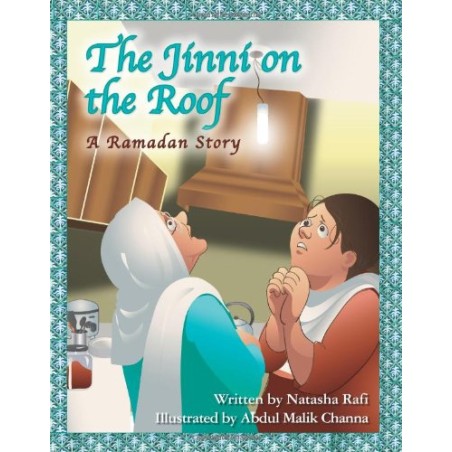



Eight-year-old Raza is too young to fast, but he longs for the delicious parathas the grown-ups eat before dawn. The aroma of the flaky, golden bread tempts him. He cannot wait for the children’s breakfast, but he’ll get into trouble if anyone finds him up this early. Lying in bed, Raza hatches a plan. Will he get away with it? This is a delightful tale about a mischievous boy who learns the true meaning of Ramadan – patience and empathy. Age range 4 -8 years.
Linked Categories
Our Review
![]()
Raza is too little to fast but loves parathas! On a weeknight he accidently wakes up before Sehri, decides to go on the roof and speaks through the chimney to trick the cook into thinking he’s a jinn/jinni. The cook goes to the grandmother, who tells her to make the parathas and writes a little note for the jinni. Having been caught by his grandmother Raza now has to help wash dishes after iftar till the end of Ramadan.
It’s a unique story set in Lahore Pakistan, about a little kid who plays a prank on his cook for parathas.
Raza is too little to fast but loves parathas! On a weeknight he accidently wakes up before Sehri, decides to go on the roof and speaks through the chimney to trick the cook into thinking he’s a jinn/jinni. The cook goes to the grandmother, who tells her to make the parathas and writes a little note for the jinni. Having been caught by his grandmother Raza now has to help wash dishes after iftar. It’s an entertaining read.
There are many cultural elements and it will resonate with Pakistani kids (and parents who grew up in Pakistan). It’s more for the 5+ age group and I wouldn’t really recommend it for little kids unless you want to introduce the concept of Jinn and be bombarded with questions!